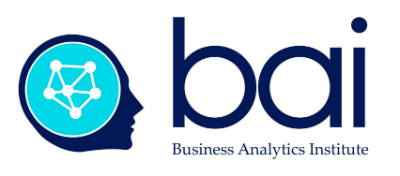How can data spur innovation?

If management is about reducing risk, uncertainty and ambiguity; data science is about transforming data into collective action. This year’s Queen’s International Innovation Challenge provides postgraduate students an opportunity to use their analytical skills and creativity to address Food Security — a universal, perpetual challenge that just won’t go away. The competition is open to all students registered in a degree or certificate postgraduate program during the during the the current academic year. What is the relationship between data science and innovation, why engage in such a challenge, why « food security », and what will be the payback for your effort?
What is the link between a university challenge and innovation? Steve Johnson’s ten-year study of the history of innovation led him to conclude that the inherent characteristics of certain “spaces”, like those of the English coffee houses in the 18th century, the Casino de Madrid in the 19th century and the World Wide Web, favor the birth of innovative ideas, products, and practices.[i] One attribute of such spaces is that they focus attention on specific problems rather than time-tested “solutions”. A second feature characteristic is that such spaces allow their participants to see the data in a new light, fostering infinite combinations of both present and the foreseeable future. Finally, these spaces encourage the confrontation of « small hunches » which develop over time into the application of ideas in novel contexts. Similar to the examples he studied, an innovation challenge provides an exceptional opportunity to transform data into innovation.
What can you learn about data science in this competition? Data Science is gauging the problem to be solved, qualifying the data at hand, applying the appropriate methodologies, and transforming data into action. Dean McKeown, Associate Director of the Scotiabank Centre for Customer Analytics, points out that the Innovation Challenge provides each participant with a unique platform to work with a highly diverse group of students, practionners, and experts from all over the world. You will be working with the staff of Queen’s Master of Management Analytics on real data from a variety of public and private data sources. You will be asked to develop a data science model that makes sense of the data, provide actionable insights, and communicate your results in manner that will incite action. Data Science will never be mastered inside a classroom but through practicing analytical methods in dealing with real world challenges.
Why focus on food security? Food security, as defined by the United Nations’ Committee on World Food Security, is the condition in which all people have physical, social, and economic access to the nutrients needed for an active and healthy life.[ii] Prof. McKeown reminds us that the management of our natural resources in the foreseeable future is fraught with risk, un certainty and ambiguity. Global warming, massive migrations, fluctuations in commodity pricing, and political unrest significantly impact food security. Public policy, as well as corporate forecasts, need to adjust to local and global conditions, including strategies for handling land use patterns, water usage, commodity trade and food processing.
What will be the payback for your effort? The Queen’s International Innovation Challenge offers you the possibility to work on questions that matter using state of the art analytical platforms like the SAS Institute’s VIYA. This is an ideal occasion to connect with students from other schools and cultures, confront your experiences and insights, and propose practices that can well have a real impact on society. The event provides an excellent opportunity to learn from seasoned practitioners and to demonstrate your skills to potential employers. The top five teams will be invited to Toronto to present their work and the laureates will claim the prizes ranging from 2 000 of 20 000 Canadian dollars. Put your thinking caps on and sign up today- for as Steve Johnson would add — “the future belongs to the connected mind”.
Lee Schlenker is a Professor at ESC Pau, and a Principal in the Business Analytics Institute http://baieurope.com. His LinkedIn profile can be viewed at www.linkedin.com/in/leeschlenker. You can follow us on Twitter at https://twitter.com/DSign4Analytics
More information on Queen’s 2017 International Innovation Challenge can be found at https://www.facebook.com/queenschallenge.
Post-graduate students can register for the competition at https://smith.queensu.ca/centres/scotiabank/competition/index.php
_________
[i] Johnson, S. (2010), Where do Good Ideas Come From : the natural history of innovation, Riverhead Books
[ii] Committee on World Food Security , website

